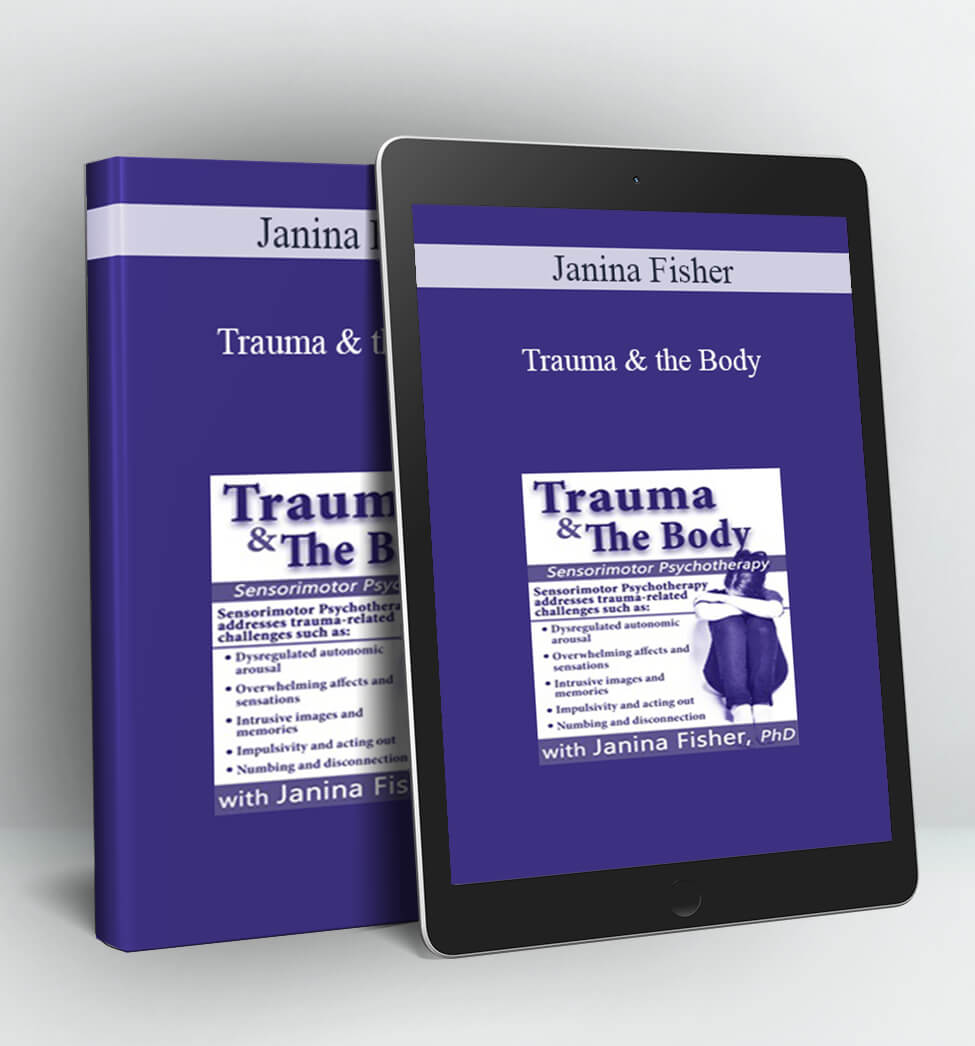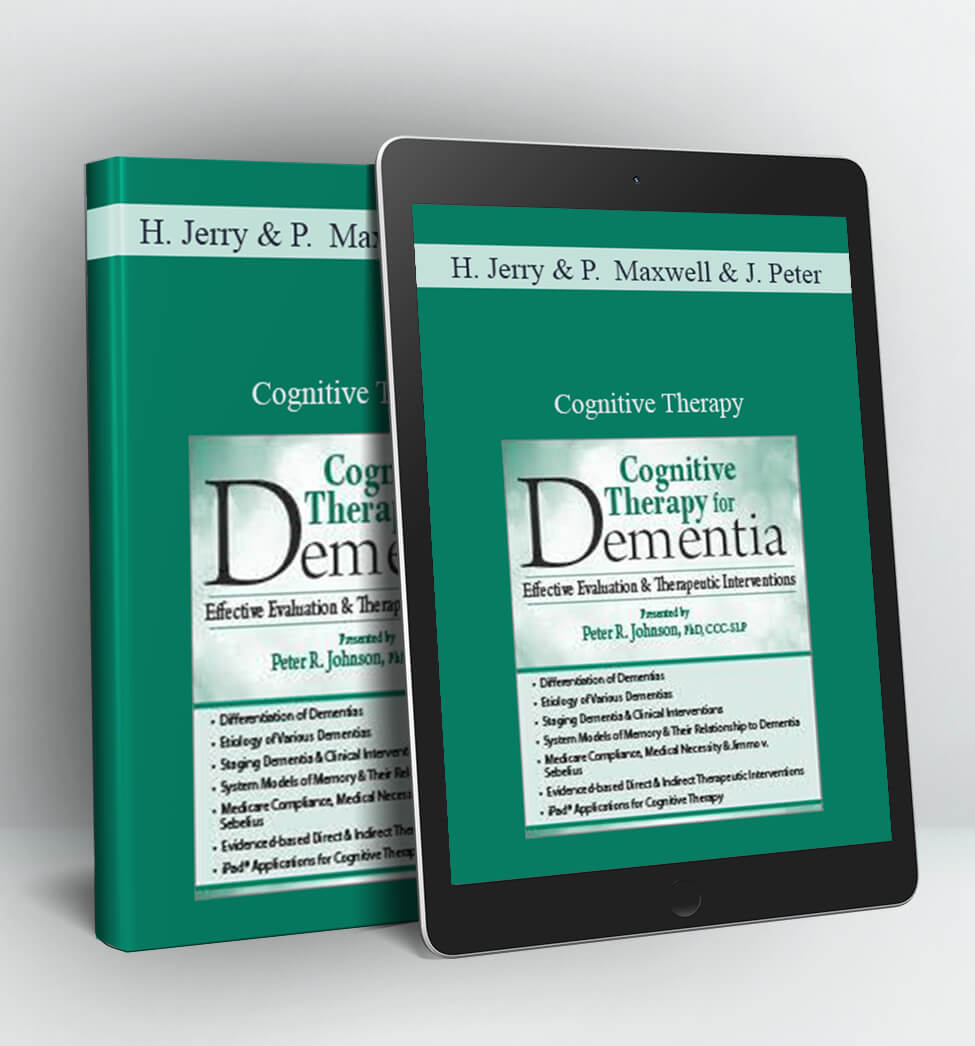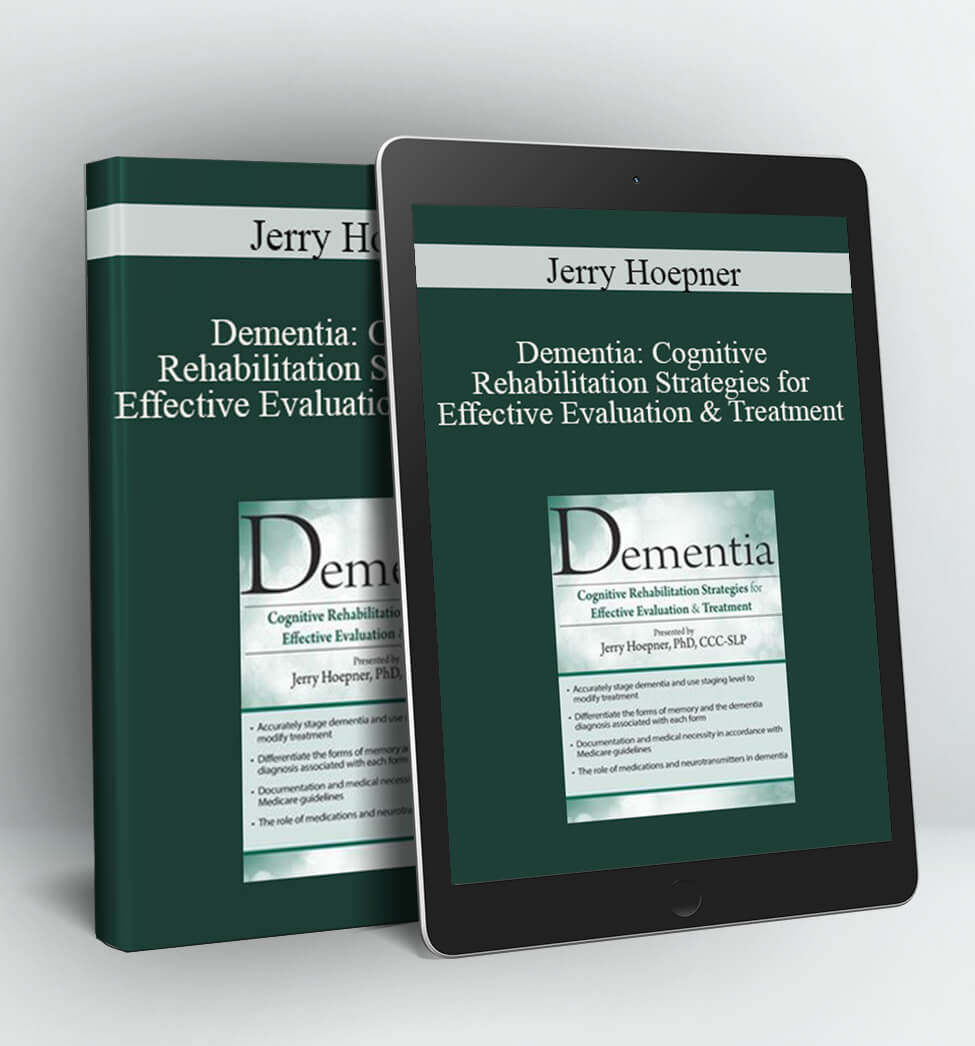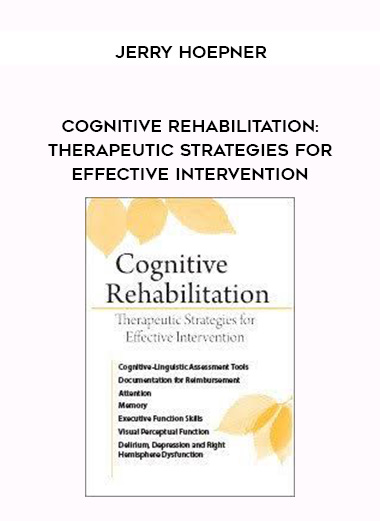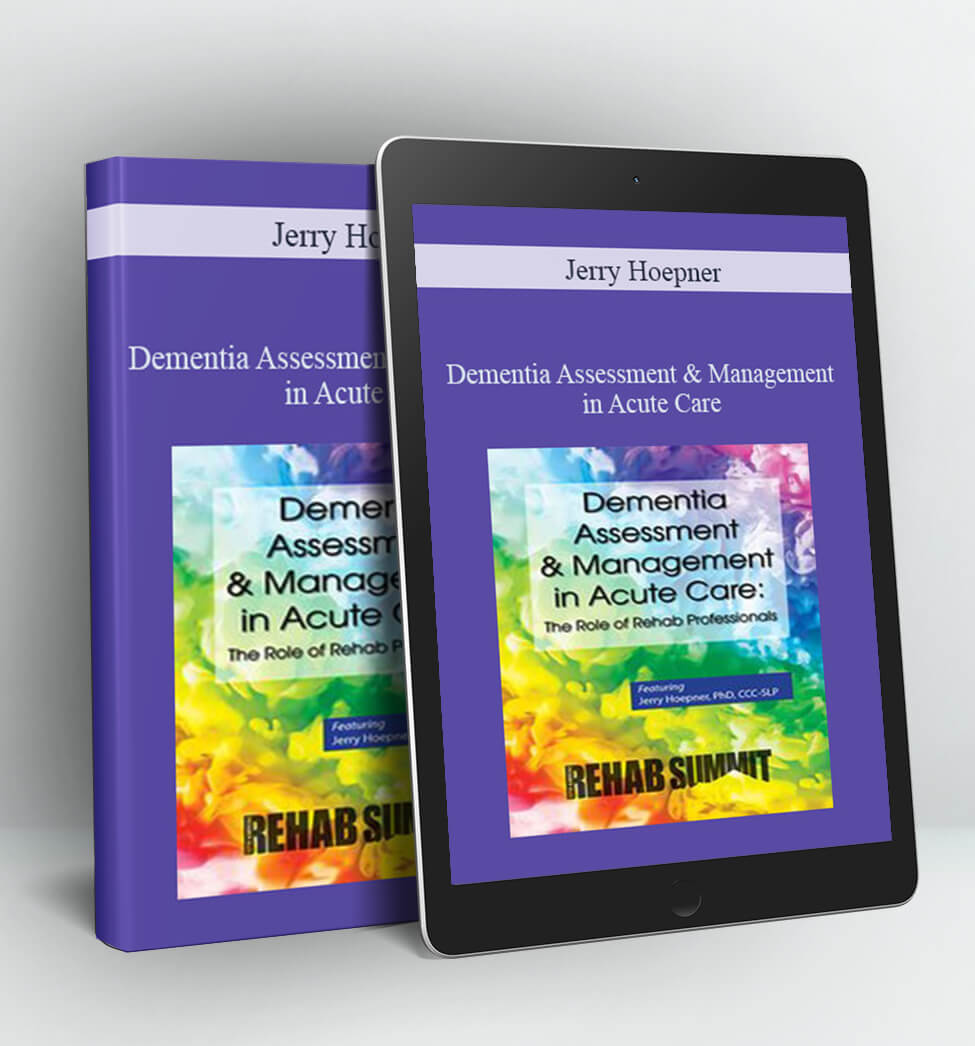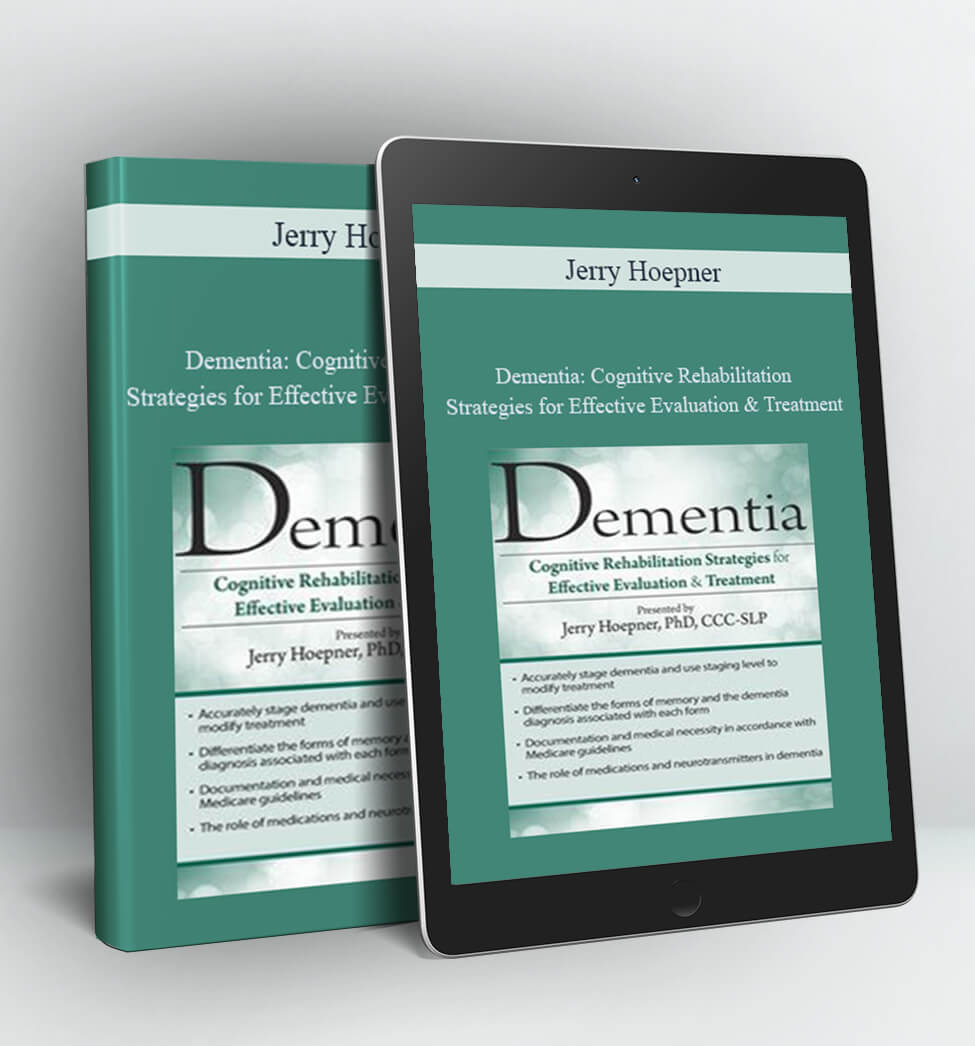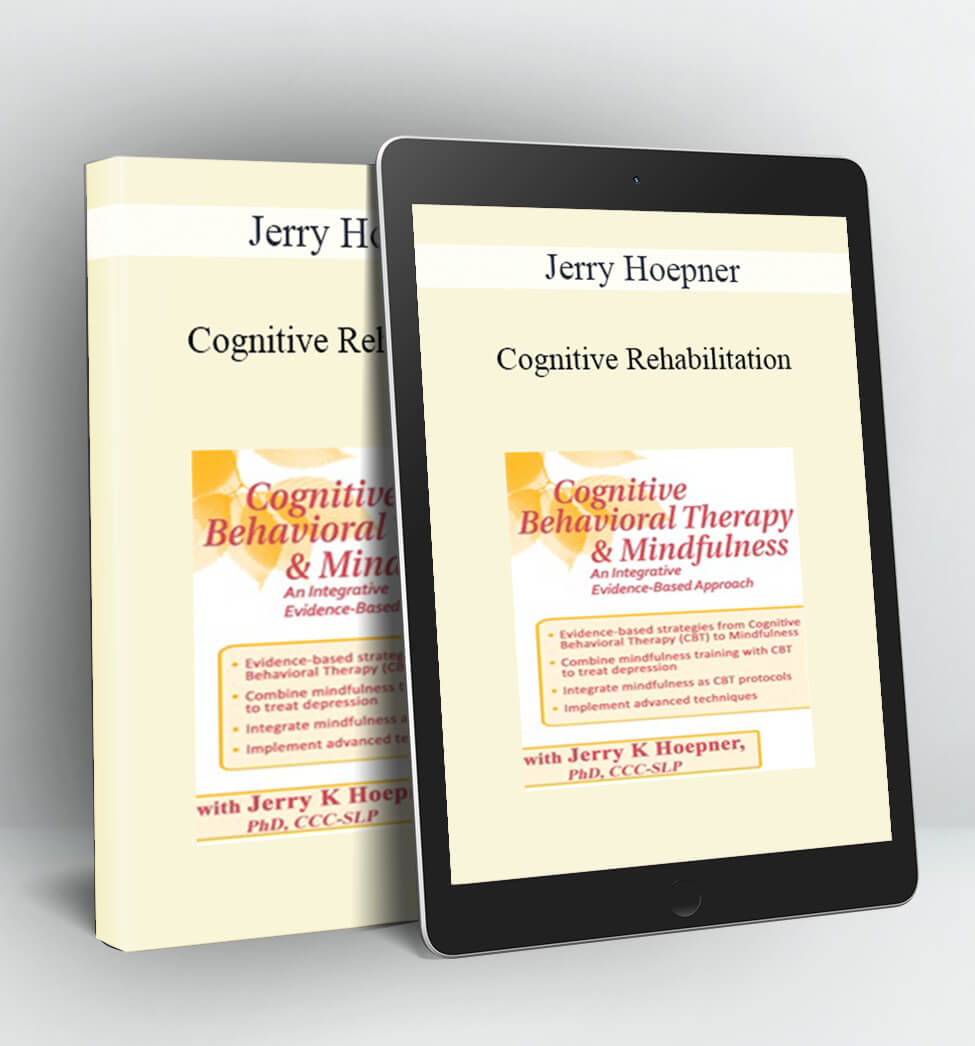Using Everyday Technologies to Support Communication & Cognition – Jerry Hoepner
- Faculty:
- Jerry Hoepner
- Duration:
- 1 Hour 55 Minutes
- Format:
- Audio and Video
- Copyright:
- Jul 26, 2019
Description
Barbara has a secret. She is starting to experience cognitive failures — forgetting events, struggling with names, and becoming overwhelmed in complex, social contexts. She wants to remain active with her community and grandchildren, but she needs support, and she doesn’t want anyone outside of her close family to know that she’s struggling.
This recording will show you how to help patients like Barbara. Discover universally designed technologies that support cognitive and functional outcomes without making patients stand out from their peers. Topics include social networking, peer support, self-management of cognitive-communication rehabilitation, communication supports, external memory aids, training, and individual modifications.
Handouts
| Manual – Using Everyday Technologies to Support Communication & Cognition (2.2 MB) | 19 Pages | Available after Purchase |
Outline
Assistive technologies for persons with acquired communication disorders.
Applications for:
- Social media
- Communication supports
- Self-management tools
- Assisted prompting
- External memory aids
- Video modeling
- Experience sampling
- Telehealth monitoring
Financial issues related to:
- Physical access
- Communication
- Self-stigma (socio-emotional access)
- Motivation
- Support cycle
DARN framework
- Desire
- Ability
- Reasons
- Need
How the support cycle relates to adoption and maintenance
Effective patient training approaches
Faculty

Jerry Hoepner, PhD, CCC-SLP Related seminars and products: 5
Jerry Hoepner, PhD, CCC-SLP, is an assistant professor in the Communication Sciences and Disorders Department at the University of Wisconsin – Eau Claire. In that capacity, he teaches coursework in neuroanatomy, dysphagia, aphasia, acquired cognitive disorders, and counseling. Dr. Hoepner received his MS from the University of Wisconsin – Eau Claire and his PhD from the University of Wisconsin – Madison in Communication Sciences and Disorders. His current research examines the role of partners in supporting the success of everyday interactions of individuals with traumatic brain injury, aphasia and dementias. A second line of research examines teaching pedagogies and learner responses. Clinically, Dr. Hoepner specializes in the use of routines to reduce demands on working memory and executive functions. He co-facilitates Aphasia Camp and the Chippewa Valley Aphasia Group.
Speaker Disclosures:
Financial: Dr. Jerry Hoepner is an assistant professor and researcher at the University of Wisconsin Eau Claire. He receives a speaking honorarium from PESI, Inc.
Nonfinancial: Dr. Jerry Hoepner is on the board of directors for the Chippewa Valley Aphasia Group.
Access Download Using Everyday Technologies to Support Communication & Cognition – Jerry Hoepner right now!
Delivery Method:
After your purchase, you’ll get access to the downloads page. Here, you can download all the files associated with your order.
Downloads are available once your payment is confirmed, we’ll also send you a download notification email separate from any transaction notification emails you receive from Vinlearn.


